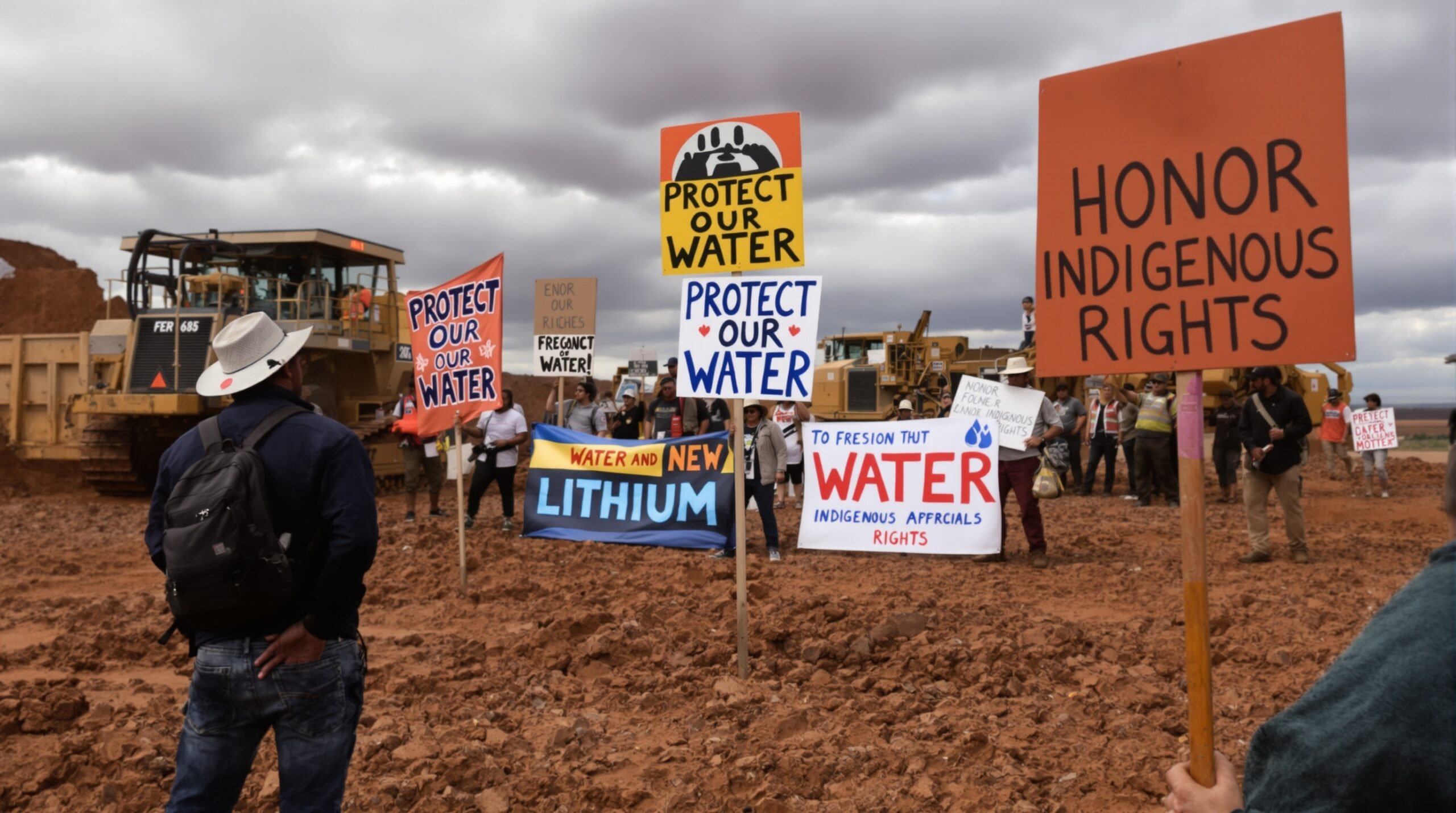State regulators in Nevada have approved a highly debated lithium mine in rural Humboldt County. This decision follows months of public hearings, technical reviews, and opposition from Indigenous groups and local ranchers. The Thacker Pass Lithium Mine, proposed by Lithium Americas, represents a major effort to boost domestic lithium production in the United States.
Background: Demand and the Drive for Domestic Lithium
Lithium is a key component used in lithium-ion batteries, powering electric vehicles, smartphones, and renewable energy storage systems. The global push for cleaner energy has fueled a surge in demand for this valuable mineral. The United States hopes to reduce its reliance on foreign supplies, especially amid international supply chain disruptions.
Nevada holds some of the nation’s largest lithium deposits, making it an attractive site for mining companies. By permitting domestic mines like Thacker Pass, government officials aim to strengthen supply chains and support the energy transition. However, this growth in mining is not without serious environmental and social consequences.
Regulatory Approval and Project Details
After evaluating thousands of public comments and extensive environmental reports, the Nevada Division of Environmental Protection (NDEP) issued a permit for the Thacker Pass Lithium Mine in June 2024. Project backers tout the mine as the largest lithium extraction site in North America, capable of producing up to 80,000 tons of lithium carbonate annually.
The project will use open-pit mining techniques and involve significant earth-moving and chemical processing. Construction could employ hundreds of workers, providing economic benefits to the region. Projected output is vital for battery makers and automakers, who are ramping up production of electric vehicles in the coming decade.
Indigenous Protests and Cultural Concerns
Indigenous groups, including the Fort McDermitt Paiute and Shoshone Tribes, have led persistent protests against the lithium mine. They argue that Thacker Pass—known as Peehee mu’huh in the Paiute language—is a sacred site of historical and cultural significance. Tribal members say the site contains ancestral burial grounds and locations related to a massacre of their ancestors in the 19th century.
Despite consultations mandated by federal law, tribal leaders insist their input has been overlooked or dismissed. Many feel the regulatory process rushed approvals without addressing their concerns about cultural impacts and treaty rights. Lawsuits and formal complaints have sought to halt or delay the mine’s progress, but courts have largely sided with the regulators.
Environmental and Water Resource Worries
Local ranchers and environmental groups have also raised alarms about the mine’s potential effect on water resources. The extraction and processing methods planned for Thacker Pass require large quantities of water, which may strain the surrounding arid ecosystem. Water contamination worries stem from the chemicals used to separate lithium from sediments, including sulfuric acid.
Waste ponds and tailings pose risks to nearby streams and groundwater, raising fears for wildlife and human health. The region supports an array of sensitive species, including sage grouse, migratory birds, and unique desert plant life. Critics argue that the environmental review underestimated these risks or failed to propose strong enough safeguards.
Regulators Respond to Concerns
NDEP and other state agencies have said the approved project meets or exceeds all environmental standards. Regulators imposed strict monitoring and mitigation requirements to minimize pollution and habitat disturbance. These steps include regular water-quality testing, dust control, and wildlife protection measures to reduce harm during construction and operations.
Lithium Americas argues that modern engineering and best practices will mitigate risks, citing studies and pledges to work with local communities. The company has also engaged technical advisory groups to address water management and waste disposal. Commitments include restoring land after mining operations cease and investing in environmental conservation.
Ongoing Legal Battles and Next Steps
Despite the permit approval, the legal fight over Thacker Pass is far from settled. Some tribal groups and environmental organizations plan to appeal or pursue new lawsuits in federal court. Questions about the adequacy of consultations and full compliance with the National Environmental Policy Act remain unresolved.
At the same time, Lithium Americas is preparing to begin ground-clearing activities by late summer 2024, proceeding with caution. The company acknowledges ongoing opposition and says it remains committed to detailed communication with all stakeholders. Meanwhile, government agencies are ramping up oversight, vowing to enforce all environmental conditions.
Broader Implications for the U.S. Energy Landscape
The dispute at Thacker Pass highlights a national dilemma. The United States needs more lithium to achieve clean energy and transportation goals. However, mining projects risk harming fragile ecosystems and eroding Indigenous sovereignty. The conflicts seen in Nevada are playing out at other proposed lithium and rare earth sites nationwide.
Industry leaders and policymakers face a challenge to balance supply-chain resilience with social justice and environmental protection. Native American groups continue to call for stronger legal protections, more thorough consultations, and respect for tribal sovereignty. Environmentalists seek cleaner mining methods and full accountability for damages to landscapes and watersheds.
Accelerating the energy transition will require both raw materials and community engagement. As the Thacker Pass case unfolds, future mining projects across the U.S. could be shaped by its outcome. Many watch closely to see whether lessons learned here translate into broader, more sustainable mining governance.
Conclusion: A Crossroads for Energy and Community Rights
Nevada’s decision to permit the Thacker Pass Lithium Mine marks a pivotal moment for American resource policy. As demand for lithium soars, tough choices about growth, justice, and ecology must be addressed. Indigenous groups and environmental advocates continue to push for protections and recognition amid the approval of critical mineral projects.
Thacker Pass will serve as a test case for how the United States pursues clean energy without sacrificing cultural heritage or environmental health. State regulators remain under pressure to enforce protections and adapt to evolving legal and social standards. The ongoing debate signals that the path to a green future will require balancing economic opportunity with respect for people and the planet.

